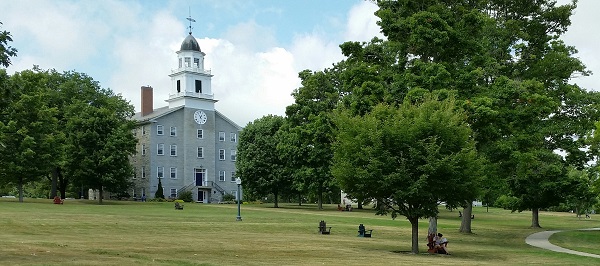The result of the US Presidential election is impacting college campuses in a variety of ways. Student activism and protests have erupted on numerous campuses including Yale, Stanford, UCLA, and the University of California at Berkeley.
There is also uncertainty about what kinds of policy implications may be in store for the higher education community under a Trump presidency. Questions about funding for student loans, impact on international students, consequences for federal funding of research, and the future of the Department of Education are all on the minds of people associated with higher education today.
I find myself reflecting on what the profound political divide in the United States says about the ways in which we conduct our politics. Among the many objectives of a college education is preparing students to be thoughtful and engaged citizens. Colleges espouse free, open, and respectful dialogue as core values, and promote campus life as a laboratory in which students can learn, practice, and develop the skills of citizenship.
I buy into that notion wholeheartedly and see the recent presidential campaign, election, and the response to it, as emblematic of how much we need as a country to devise new and more effective ways of framing our in political discourse.
I think my biggest take away from this election is the extent to which it demonstrates how badly broken the way we do politics as a nation is. That is not sour grapes. There was a contest and the choices were clear and one side won. That’s how our democratic republic works. When the side you’re on wins, it feels good. When your side loses – not so much.
What I mean is there is nothing about the current state of our politics that promotes actual discourse among and between candidates and the electorate. Since the objective is to win 51 separate winner-take-all elections*, presidential campaigns carve up the electorate into neatly packaged demographic slices and target geographic areas where they think they can win. They seek voters who think like they do, tailor messages to those people, and ignore those who don’t. At present, presidential campaigns spend almost no time or energy in the 3 most populous US states (California, Texas, and New York) because it is a forgone conclusion which candidate (party) will win them. How messed up is that? The cynical gerrymandering of congressional districts further ensures that far too often candidates only have to appeal to voters who are predisposed to see the world as they do. So they ignore the plight of others and blithely stuff incredibly complex issues into tidy little boxes: good and bad; us and them.
As individuals, we are no better. We spend our time in social media echo chambers where the voices we hear and positions that are promoted more often than not reflect and support the views we already hold. We click out dismissive, crude, and frequently profane Tweets and Facebook comments without thinking because, you know, who cares? It’s just social media, right? We have normalized incivility and inured ourselves to cruelty. We have become coarser, more unkind, and narrower in our world views. We are good. They are bad.
We choose the flavor of news we want. We read newspapers and tune into radio and TV stations that tilt in ways that make us feel better about ourselves and the rightness of our views.
We talk at and past one another. We dismiss and mock those with different political affiliations without actually knowing who they are or what they care about or why they vote the way they do. We don’t discuss ideas. We don’t listen to or empathize with those whose views are different from ours. So, we grow more deeply divided, more resentful, and less generous. And we make it easy for the charlatans on the far left and the far right to separate us each from each.
One of the most inspiring and enduring dimensions of the American ideal is a powerful underlying optimism and belief that we can make our lives and our world better. I believe that there is much more that unites us as Americans than divides us. The task before us is to create pathways for real dialogue. To reject politics of personal derision. To demand that those who seek public office address the issues that impact our lives. And to participate in politics and public work with a presumption of good faith and a spirit of generosity.
I find myself profoundly bolstered by the idealism of the Millennial generation – including current and future college students. Your sense of fairness and commitment to social justice are laudable and bode well for our future as a nation. I urge you all to continue the hard work of meaningful dialogue, promoting equity, and advancing democratic ideals on your campuses and in your communities.
*Maine and Nebraska award electoral votes in part by congressional district within the state.
